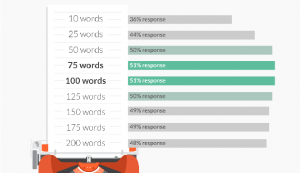Search engine optimization (SEO) is one of the top reasons marketers invest in content, but Google’s latest algorithm update (better known as Hummingbird) completely changes the way content is ranked and evaluated. Now, Google is ensuring SEO goals won’t get in the way of good content.

Putting Keywords in Their Place for “New SEO”
To understand the meaning of Web pages, Hummingbird pulls together elements from Google’s Knowledge Graph and social signals, gathering context beyond the words on a page.
Around the same time Hummingbird was introduced, the amount of keyword data “not provided” in Google Analytics reports reached an all-time high – 73 percent. This presented new challenges, but there was a silver lining. It forced marketers to rethink their approach to content and SEO strategies, preparing them for larger changes they’ll need to succeed in a search landscape built around semantic meaning.
Keyword strategies aren’t null and void, but it’s important to use available search query insights to evaluate how organic clicks and traffic are part of a bigger picture.
Case in point: Brafton used keyword data in Webmaster Tools to discover that a top blog post received a high volume of organic traffic for the term “best Facebook contest app,” even though that exact phrase wasn’t included in the piece. Instead, the headline argued that there is a “winner” (or best) among contest apps for social media. This is Hummingbird at work – the algorithm extracts the essence of content, instead of using surface-level signals for clues. The algorithm “understood” the piece was about Facebook contest apps and served it to users, even if the precise query typed wasn’t used in the text.
 Achieving SEO and Bigger-Than-Search Wins With Content
Achieving SEO and Bigger-Than-Search Wins With Content
In the post-Hummingbird Web, the content that’s rewarded addresses audience needs more than “algorithm requirements.” It’s a good reminder for marketers that SEO is a means to an end, and there are bigger goals smart content marketing can achieve.
Hummingbird is looking for context to see how well the ideas on a page answer Internet users’ questions. It aims to understand whether you want a recipe or a restaurant when you search for “best pizza” by looking at complex signals.
Marketers who want to succeed in the semantic Web need to start thinking about how their content anticipates and answers questions at every stage of purchase decisions. For more information about optimizing content for success in a post-Hummingbird SEO world, come to Brafton’s presentation at ClickZ Live New York on Wednesday, April 2 at 11 a.m. and download a free copy of “Speaking Google’s Language: Optimizing Content for the Semantic Web.”
Read more on ClickZ
(803)
Report Post






